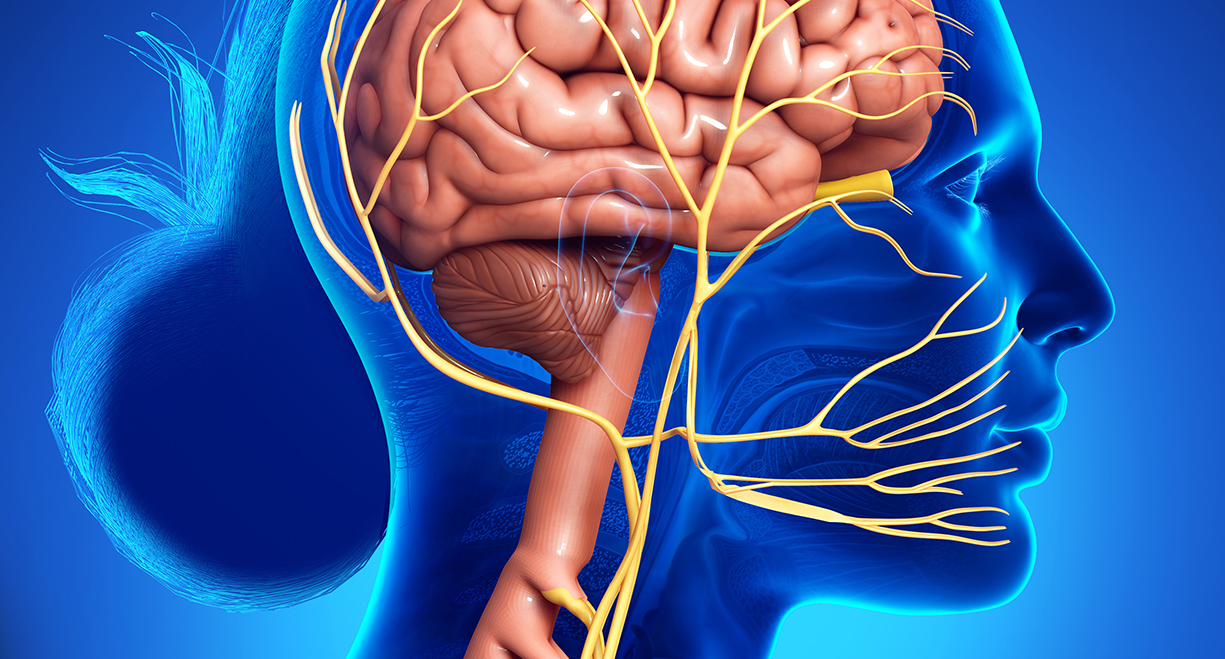

Your nervous system is one of the most vital parts of your body. It controls how you think, feel, move, and even rest. When your Nerve Health is in balance, every part of your body communicates properly — your muscles respond quickly, your reflexes are sharp, and your mind stays calm and focused.
But when your nerves become weak or damaged, you may experience pain, tingling, or numbness that affects your daily life. Many people ignore these early signs, but poor Nerve Health can lead to serious problems if left untreated. The good news is that your nerves can be strengthened and protected naturally with the right habits, nutrition, and care.

The human body has a complex network of more than 7 trillion nerves, all working together to send signals between your brain, spinal cord, and the rest of your body.
When both systems are in harmony, your Nerve Health remains strong. However, lifestyle factors like stress, poor diet, and lack of sleep can damage this balance — slowing down communication between brain and body. Maintaining healthy nerves means more than avoiding pain; it’s about supporting your energy, emotions, and long-term vitality.
Understanding what weakens your nerves helps you take proactive steps to protect them:
When your nerves start to weaken, your body often gives subtle signals. Recognizing these early signs can help you take action in time:
If any of these symptoms persist, it’s time to prioritize your Nerve Health through nutrition, exercise, and stress control.
Nutrition plays the biggest role in building and repairing nerves. Adding nerve-friendly foods to your daily meals can make a huge difference.
B vitamins (especially B1, B6, and B12) are essential for nerve repair and communication.
These healthy fats help regenerate damaged nerves and reduce inflammation.
Magnesium supports nerve relaxation and reduces cramps.
Antioxidants protect nerves from oxidative stress caused by free radicals.
Nerves rely on amino acids for repair and growth.
For more Nerve Health tips and natural nutrition guides, visit NeuroGenica.
Your daily routine has a direct impact on your Nerve Health. Small habits, when practiced consistently, can protect and rejuvenate your nervous system.
Exercise boosts blood circulation and oxygen supply to nerve tissues. Activities like walking, swimming, or cycling for at least 30 minutes daily can strengthen your nerves naturally.
During deep sleep, your body repairs nerve cells. Aim for 7–8 hours of rest each night and maintain a fixed sleep schedule.
Chronic stress is one of the biggest enemies of Nerve Health. Try yoga, meditation, or breathing exercises to calm your nervous system.
Dehydration slows nerve signaling. Drink 8–10 glasses of water daily to keep your body and nerves functioning smoothly.
Limit alcohol, caffeine, and smoking — all of which can irritate nerves and cause long-term damage.
Physical movement doesn’t just build muscle; it improves nerve activity too. Some specific exercises enhance coordination and nerve flexibility:
Regular exercise keeps your nervous system active and responsive — one of the simplest ways to boost Nerve Health naturally.
If you want to go beyond diet and exercise, natural relaxation techniques can work wonders:
These simple habits can help you feel calmer, sharper, and more balanced.
Your nerves don’t just control your body — they reflect your emotions too. When you’re constantly anxious, angry, or sad, your body releases stress hormones that overstimulate the nervous system.
To restore emotional balance:
When your emotions are balanced, your Nerve Health improves automatically.
Even small daily mistakes can have long-term effects on your nerves. Be mindful to avoid:
By staying aware and making conscious choices, you can protect your nervous system and maintain long-term vitality.
Once your nerves begin to recover, the goal is to keep them strong for life. Here’s how you can maintain lasting Nerve Health:
For more Nerve Health tips and long-term wellness advice, visit NeuroGenica.
If your symptoms worsen despite lifestyle changes — such as ongoing numbness, weakness, or severe pain — consult a healthcare expert. Early diagnosis helps prevent further nerve damage and supports faster recovery.
Your nerves are the lifelines that connect your mind and body. Taking care of them ensures you stay sharp, energetic, and in control of your daily activities. Through nutritious foods, regular movement, good rest, and mental balance, you can maintain strong and responsive nerves for years to come.
Start today with small, consistent steps — your body will thank you for it.
This product is very helpful for this problem.
click here